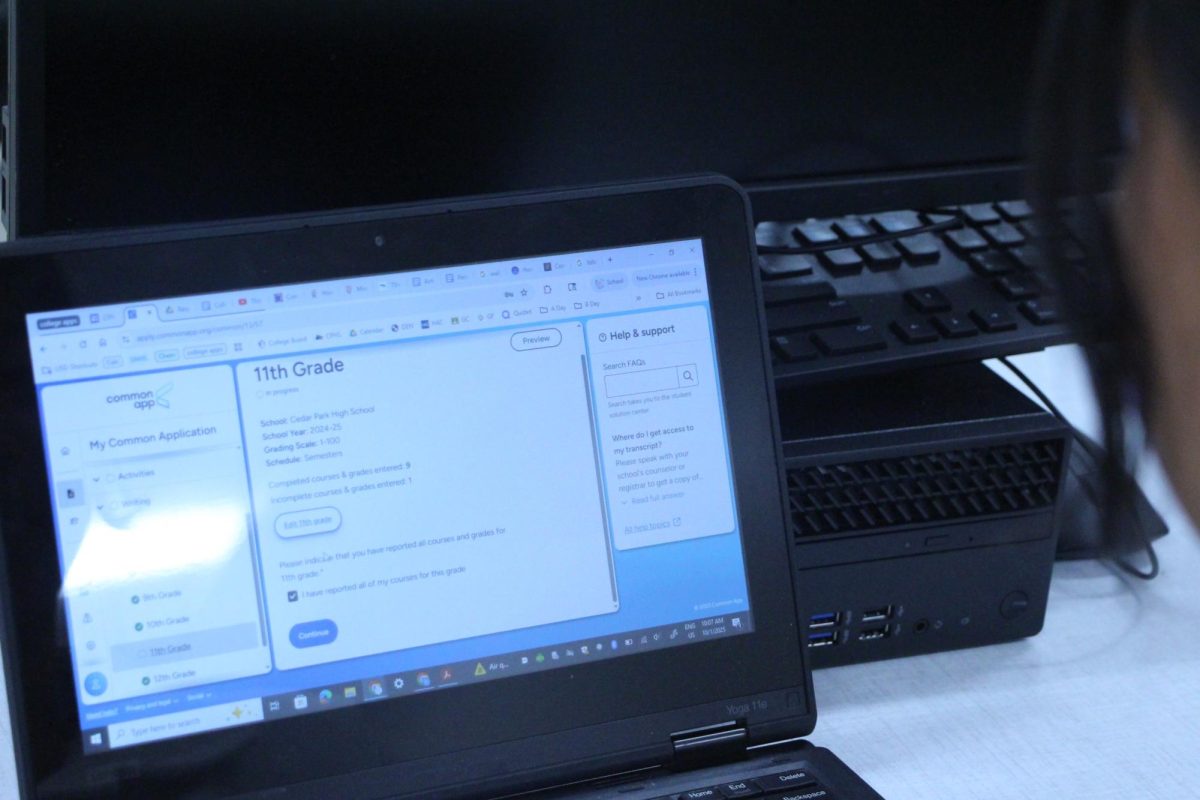The Texas Board of Higher Education is proposing a new law that would prevent students in Pre-AP classes from receiving the full extra point on GPA’s and would alter the way the grade point averages are calculated. Currently there is no consistent standard for calculating GPA’s in Texas.
Right now, GPA calculations vary from district to district; some districts count electives and others don’t. Some districts exclude college level classes and classes taken in middle school, and others count every single class. The law would standardize GPA calculations across the state.
This new proposal addresses many concerns from previous drafts, now including some art, career, and technical education courses and giving more weight to AP classes.
All courses selected in the Recommended High School Program would count in GPA calculations. Those Recommended High School Program courses, which are used as a graduation outline, would include four years of social studies, four years of English, four years of math, four years of science, two years of a foreign language, one year of fine arts, and three and a half years of college preparatory electives. Any AP or technical education courses that the Texas Higher Board of Education believes prepare students for college would be counted as well.
This state proposal could cut physical education participation and some fine arts classes from these calculations. Also, it would allow less room in the schedule for vocational learning.
Students would earn points on a four point scale under this proposal, rather than the five point scale that CPHS currently has. An A in regular classes would be worth four points and AP, International Baccalaureate, and dual-credit courses would all get a full additional point. Pre-AP and Pre-IB classes would only be worth an extra half point. Originally the board suggested that the Pre-AP classes not count for any supplementary points. If the law is passed, the board will appoint a committee that will ensure that Pre-AP and Pre-IB classes are difficult enough to earn the bonus weight.
Many students disagree with this proposal.
“They shouldn’t take away the extra points for Pre-AP classes because they are still very challenging and you should be rewarded,” Ada Zhang, sophomore, said.
Many people think that not allowing students to earn the extra full point for Pre-AP classes takes away some of the incentive to take the more challenging classes.
“It’s not a good idea to take away the full points,” Katy Burris, sophomore, said. “If you have an initiative to challenge yourself, you earn these points.”
Others think that since the Pre-AP classes are not college level, half of a point would suffice. There is no customary approach to take on teaching a Pre-AP class, so thereisn’t a way to ensure that they are all taught at the same level.
“”I understand because Pre-AP is still not AP, no matter how you look at it,” Hailey Rosen, junior, said.
Some board members agree that it would be for better for the future of students to follow through with this.
“If we implement the college readiness standards statewide, that would essentially mean that all classes are Pre-AP, which is a good thing,” Raymund Paredes, Texas Higher Education employee, said.
Whether or not this proposal comes into effect will be determined in January 2009 and, if accepted, it will start in May with the 2009 freshmen. GPA points would not be taken away from high school students who have previously taken Pre-AP classes before 2009.










![Broadcast, yearbook and newspaper combined for 66 Interscholastic League Press Conference awards this year. Yearbook won 43, newspaper won 14 and broadcast took home nine. “I think [the ILPC awards] are a great way to give the kids some acknowledgement for all of their hard work,” newspaper and yearbook adviser Paige Hert said. “They typically spend the year covering everyone else’s big moments, so it’s really cool for them to be celebrated so many times and in so many different ways.”](https://cphswolfpack.com/wp-content/uploads/2025/05/edited-ILPC.jpg)





![Looking down at his racket, junior Hasun Nguyen hits the green tennis ball. Hasun has played tennis since he was 9 years old, and he is on the varsity team. "I feel like it’s not really appreciated in America as much, but [tennis] is a really competitive and mentally challenging sport,” Nguyen said. “I’m really level-headed and can keep my cool during a match, and that helps me play a bit better under pressure.” Photo by Kyra Cox](https://cphswolfpack.com/wp-content/uploads/2025/09/hasun.jpg)

![Bringing her arm over her head and taking a quick breath, junior Lauren Lucas swims the final laps of the 500 freestyle at the regionals swimming competition on date. Lucas broke the school’s 18-year-old record for the 500 freestyle at regionals and again at state with a time of 4:58.63. “I’d had my eye on that 500 record since my freshman year, so I was really excited to see if I could get it at regionals or districts,” Lucas said. “ State is always a really fun experience and medaling for the first time was really great. It was a very very tight race, [so] I was a bit surprised [that I medaled]. [There were] a lot of fast girls at the meet in general, [and] it was like a dogfight back and forth, back and forth.” Photo by Kaydence Wilkinson](https://cphswolfpack.com/wp-content/uploads/2025/03/Kaydence-2.7-23-edit-2.jpg)
![As her hair blows in the wind, senior Brianna Grandow runs the varsity girls 5K at the cross country district meet last Thursday. Grandow finished fourth in the event and led the varsity girls to regionals with a third place placement as a team. “I’m very excited [to go to regionals],” Grandow said. “I’m excited to race in Corpus Christi, and we get to go to the beach, so that’s really awesome.” Photo by Addison Bruce](https://cphswolfpack.com/wp-content/uploads/2025/10/brianna.jpg)











